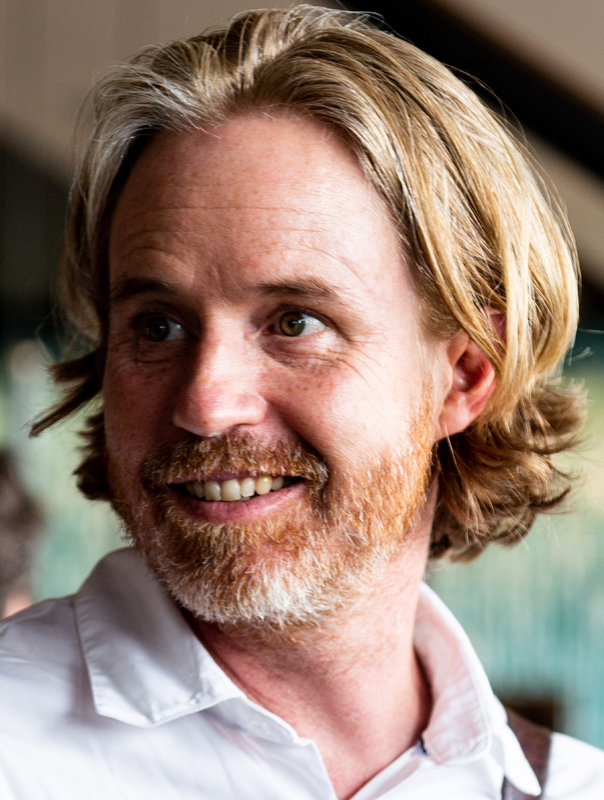|
(English Translation Below)
Dag 61 en 62: Saint Louis Die Senegalrivier sproei ons in 'n soutreën nat soos wat die boot wind-op deur die golwe gly. Pap sit agter by die roer en vertel ons van die rivier. Ek en De Witt sit voor. Ons het drie dae van laaglê in Saint Louis omdat ons Morocco-visums eers oor 'n week geldig is. Die eeue-oue rivier, wat dit destyds moontlik gemaak het vir die Portugese en Franse om mense, ivoor en goud diep vanuit Afrika te laat uitbloei Europa toe, ontspring in Guinea en bring dan die oerwoud se reënwater deur Mali en al langs Mauritanië verby tot waar dit hier by Saint Louis uitmond. Saam met die reënwater ook skynbaar daardie hele geweste se plastieksakke, bottels, plakkies, dromme en visnet, want die oewers is 'n kors van plastiek. Die dorpie is 'n eiland wat deur die riviermonding gevorm is, netjies ingepas tussen die rivier aan die een kant en die see aan die ander kant. Die monding is rof, veral as die wind waai. Volgens Pap slaan daar gereeld bote om en verdrink die bemanning. Kyk na hierdie prentjie: Dis die pad al langs die rivier af in die rigting van die mond. Aan die linkerkant, vir omtrent 5km, lê die skuite kleurvol en in verskillende stadia van verblyking ingeryg langs mekaar op die oewer. Honderde van hulle. Tussen-in en bo-op die skuite 'n wemeling van mense en nette en bokke en donkies. Dit ruik na vis. En riool. Aan die regterkant van die pad 'n lang ry geboutjies deur die Portugese of die Franse gebou, meestal half vervalle, mense in en uit. Kaalvoetkinders oral. Na 'n ruk, aan die regterkant, hou die geboutjies op en begin die begraafplaas, wat ook vir 'n kilometer of drie aanhou. Dit voel ironies, die skuite en grafte wat so vir mekaar kyk oor die pad. Teen skemeraand stap ek om fotos van die bote te neem. Wonder hoekom dit is dat fotos van verval - skeepswrakke, murasies, verslete skuite - so treffend is? Dalk die morbiede herinnering: Alles kom tot niks. Die aand drink ons Mojito's. Ons jeuk om weer te ry. Dis moeilik om stil te sit as mens weet daar is lang stukke woestynwind en son wat voorlê. Dis nog omtrent 3000km se woestyn tot in Europa, en dan nog omtrent 3000km se winterpad tot in Rotterdam. Môre die motorfietse vol petrol maak en pak sodat ons Saterdagoggend vroeg 'n goeie ent kan vorder tot in Mauritanië. Day 61 and 62: Saint Louis The Senegal River sprays us with a salty rain as the boat glides windward through the waves. Pap sits at the back, steering the boat, telling us about the river. De Witt and I sit at the front. We have three days to relax in Saint Louis because our Morocco visas are only valid in a week from now. The centuries-old river, which once made it possible for the Portuguese and French to bleed people, ivory, and gold from deep within Africa to Europe, originates in Guinea. It then brings the equatorial rainwater through Mali, passing along Mauritania until it reaches its mouth here at Saint Louis. Along with the rainwater, apparently, comes the whole region's plastic bags, bottles, flip-flops, cans and fishing nets, as the banks are a crust of plastic. The town is an island formed by the river mouth, neatly nestled between the river on one side and the sea on the other. The mouth is rough, especially when the wind is strong. According to Pap, fishing boats often capsize here and their crews drown. Look at this picture: It's the road along the river towards the mouth. On the left side, for about 5km, the boats lie in various colours and stages of fading along the bank. Hundreds of them. In between and on top of the boats, a bustling scene of people, nets, goats, and donkeys. It smells like fish. And sewage. On the right side of the road, a long row of buildings built by the Portuguese or the French, mostly half-ruined, people in and out. Barefoot children everywhere. After a while, on the right side, the buildings stop, and the cemetery begins, extending for a kilometre or three. It feels ironic, the boats and graves looking at each other across the road. At dusk, I walk to take pictures of the boats. I wonder why pictures of decay - shipwrecks, ruins, worn-out fishing boats - are so striking? Perhaps the morbid reminder that everything comes to nothing. In the evening, we drink Mojitos. We itch to ride again. It's difficult to sit still when you know there are long stretches of desert wind and sun ahead. It's about 3000km of desert to Europe, and then about another 3000km of winter road to Rotterdam. Tomorrow, we'll fill up the motorcycles with petrol and pack them so that we can leave early on Saturday morning to make good progress to Mauritania.
0 Comments
Leave a Reply. |
AuthorThis blog was written by Dr. Jean Cooper. For my work as organisational psychologist, adventurer and writer, go to www.jeanhenrycooper.com |




